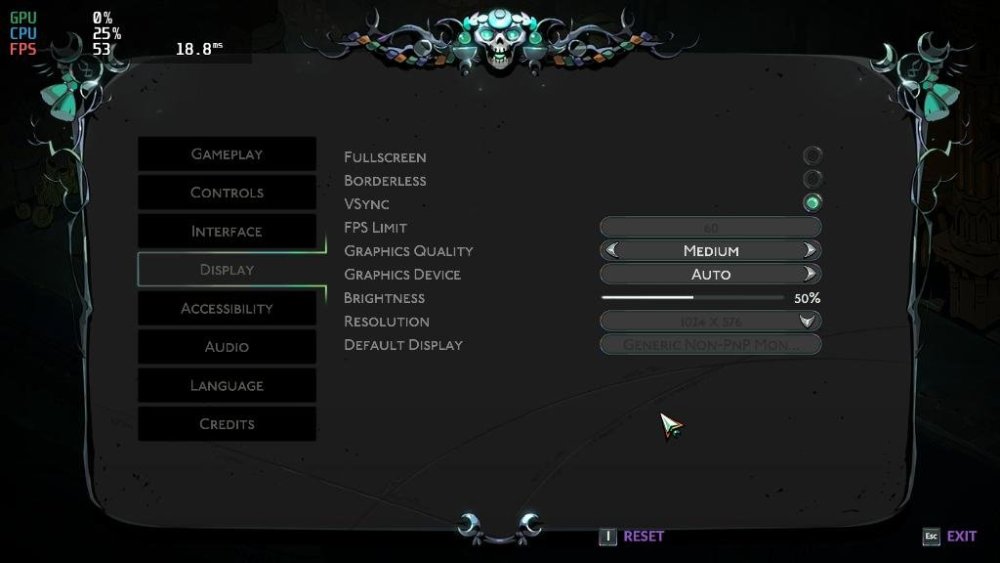Active threads
Showing topics posted in for the last 365 days.
- Today
-
Try to build from this PR: https://github.com/armbian/build/pull/9381 - use CURRENT branch - enable additional DEBUT if it doesn't proceed - leave u-boot as is or try with most recent
-
The issue was that these variables in the kernel config were set to 10. Setting them to 12 allowed uart10 to initilaize. CONFIG_SERIAL_8250_NR_UARTS=12 CONFIG_SERIAL_8250_RUNTIME_UARTS=12
-
Hello everyone Just would like to start a discussion about the current state of video acceleration (decoding only, h.265/h.264/av1). The soc (rk3588) recently got mainline support for these features in 7.0: https://gitlab.collabora.com/hardware-enablement/rockchip-3588/notes-for-rockchip-3588/-/blob/main/mainline-status.md Has anyone tested this on a OPI5 already, especially using Kodi? Does this work ootb there now? Regards, XXXBold
-
Hi! I have an OrangePi3 (not Zero!) running Armbian (H6), with a TFT ILI9486 display connected via the 26-pin header. The screen works fine, but the XPT2046 touch controller does not initialize. Here’s the situation: CS0 on PH5, DC on PD16, RESET on PD21. XPT2046 (CS1) on PL8, IRQ on PD24. I tried adding XPT2046 to the overlay with all parameters configured (ti,x/y-min/max, pressure, swap-xy, etc.). The overlay compiles successfully, but when loading the module it says: ads7846 spi0.1: probe with driver ads7846 failed with error -22 I also tried loading the ads7846 module with parameters via modprobe — all parameters are ignored because the driver only supports configuration via Device Tree. Here is my current overlay: /dts-v1/; /plugin/; / { compatible = "allwinner,sun50i-h6"; fragment@0 { target = <&spi1>; __overlay__ { status = "okay"; cs-gpios = <&pio 7 3 0>; display: display@0 { compatible = "ilitek,ili9341"; reg = <0>; pinctrl-names = "default"; spi-max-frequency = <20000000>; txbuflen = <65536>; rotate = <90>; bgr = <0>; fps = <30>; buswidth = <8>; regwidth = <16>; height = <480>; width = <320>; dc-gpios = <&pio 3 16 0>; reset-gpios = <&pio 3 21 1>; debug = <3>; init = <0x10000b0 0x00 // Interface Mode Control 0x1000011 // Sleep Out 0x20000ff // Delay (255ms) 0x10000C0 0x0D 0x0D // Power Control 1 0x10000C1 0x43 // Power Control 2 0x10000C5 0x00 0x48 0x80 // VCOM Control 1 0x10000C7 0x00 // VCOM Control 2 0x1000036 0x28 // Memory Access Control (Rotação) 0x100003A 0x55 // Pixel Format Set (16bit) 0x10000B1 0xB0 0x11 // Frame Rate Control 0x10000F0 0x01 // Enable Extended Comand Set 0x10000F6 0x00 0x01 0x32 // SPI ilInterface Control 0x1000026 0x01 // Gamma Set 0x10000E0 0x0F 0x31 0x2B 0x0C 0x0E 0x08 0x4E 0xF1 0x37 0x07 0x10 0x03 0x0E 0x09 0x00 // Positive Gamma Correction 0x10000E1 0x00 0x0E 0x14 0x03 0x11 0x07 0x31 0xC1 0x48 0x08 0x0F 0x0C 0x31 0x36 0x0F // Negative Gamma Correction 0x10000B6 0x02 0x02 0x3B // Display Function Control 0x1000011 // Sleep Out 0x20000ff // Delay (255ms) 0x1000029>; // Display ON }; /* --- ADS7846 (XPT2046) --- */ ads7846: ads7846@1 { compatible = "ti,ads7846"; reg = <1>; pinctrl-names = "default"; spi-max-frequency = <1000000>; interrupt-parent = <&pio>; interrupts = <3 24 2>; pendown-gpio = <&pio 3 24 1>; cs-gpios = <&pio 11 8 0>; /* OPTIONS */ ti,x-min = /bits/ 16 <0>; ti,y-min = /bits/ 16 <0>; ti,x-max = /bits/ 16 <0xFFF>; ti,y-max = /bits/ 16 <0xFFF>; ti,pressure-min = /bits/ 16 <0>; ti,pressure-max = /bits/ 16 <0xFFF>; ti,x-plate-ohms = /bits/ 16 <400>; ti,swap-xy = <1>; }; }; }; }; Could anyone advise how to properly connect XPT2046 so that PD24 is used as IRQ? Is there a working example overlay for TFT ILI9486 + XPT2046 on OrangePi3 / H6? Or has anyone managed to use the touch controller via a module without overlay? Or is that simply impossible on this kernel? I would really appreciate any working examples or advice!
-
hi. Please tell me, I installed the image and bootloader on the emmc (armbian) on the radxa 5t and now I can't install another one because the board doesn't want to start from the CD card. what should I do? Im try this but doesnt work https://docs.radxa.com/en/rock5/rock5t/low-level-dev/maskrom/erase
-

Efforts to develop firmware for H96 MAX V56 RK3566 8G/64G
Ý Nguyễn replied to Hqnicolas's topic in Rockchip CPU Boxes
I'm having trouble figuring out how to install a timer switch on the RK3566 board, or if there's any software from the manufacturer that can help with scheduling the power on/off times for the motherboard. - Yesterday
-
thnx. it seems latest working vendor kernel for 3566 is 6.1.115. i already tried rk35xx, with bigtreetech_cb2.dtb but it stops at u-boot (in uart console) using orangepi-3b it boots, but gives errors in dmesg. when i try to add fdtfile bigtreetech_cb2.dtb, it stops boot .... 47274496 bytes read in 3902 ms (11.6 MiB/s) Failed to load '/boot/dtb/rockchip/rk3566-bigtreetech-cb2.dtb' libfdt fdt_check_header(): FDT_ERR_BADMAGIC No FDT memory address configured. Please configure the FDT address via "fdt addr <address>" command. Aborting! Trying kaslrseed command... Info: Unknown command can be safely ignored since kaslrseed does not apply to all boards. Unknown command 'kaslrseed' - try 'help' ..... but when i boot btt_cb2 as orangepi3b board, it boots and even shows mpp venc/dec/npu/whatever modules properly loaded. not checked yet if it works really maybe need to make some hybrid dtb from btt_cb2 and orange3b ========= btw, could You share what You do for 35xx board change? when i tried to change family rockchip64 to 35xx, it comiled, but not copied bigtreeetech_cb2.dtb to boot , and not boots ewven if i copy it by myself there
-
At this point, the most realistic path is to use hardware that is already officially supported. Bringing up new hardware or maintaining outdated vendor kernels requires significant engineering time and resources. Board enablement is not a small task. It involves ongoing maintenance, testing, integration work, and long-term support. This represents real cost for the project while public project funding is not even on the level to cover response of such ideas. If you are expecting someone will just emerge and spent months of his private time in exchange for: constant insults, hate and complete absence of financial coverage for the time spent (things are never in perfect state to satisfy over-spoiled customers of someone else) ... adjust expectations. We encourage users to choose hardware wisely - that already has active support and to contribute back to the project when possible. That is the only way we can avoid overextending limited resources, burnouts, collapse.
- Last week
-
This Gdrive is empty now... Did we see any improvements for the Orange Pi 4A in the 26.2.1 release?
-
That's strange 🙂 ...we have the same kernel. Maybe something's broken in the system? But I haven't messed with Bluetooth in the system. I've only updated the system: apt update /apt upgrade /reboot 🙂 root@orangepi3-lts:~# rfkill ID TYPE DEVICE SOFT HARD 0 bluetooth bluetooth unblocked unblocked 1 wlan phy0 unblocked unblocked .............................. bluetoothctl Waiting to connect to bluetoothd... it keeps reading but shows nothing? ................... bt-device -l ** ERROR:lib/bluez/adapter.c:165:adapter_get_dbus_object_path: assertion failed: (ADAPTER_IS(self)) Bail out! ERROR:lib/bluez/adapter.c:165:adapter_get_dbus_object_path: assertion failed: (ADAPTER_IS(self)) Aborted ............. Something must have broken in the system, but what and where? Can you give me the exact: Armbian image + version ... Contents of ..../lib/firmware/uwe5622/ also: armbianEnv.txt Output dmesg | grep -i uart i dmesg | grep -i bluetooth Maybe that will help me figure out where the errors are in my system? Or maybe I have Debian and you have Ubuntu? Ps. or, more simply, information from the file: diagnostics.txt command in terminal: ................. ( uname -a cat /etc/os-release ls -lh /lib/firmware/uwe5622/ lsmod | grep -iE "bt|sprd|uwe" dmesg | grep -i uart ls /dev/tty* | grep -i "ttyS\|ttyAMA\|ttyBT" cat /boot/armbianEnv.txt rfkill list hciconfig -a bluetoothctl list hcitool dev bt-device -l dmesg | grep -iE "bluetooth|uwe|sprd|hci" ) > diagnostics.txt .....................
-
DKMS compilation per board, examples: https://github.com/armbian/build/blob/main/config/boards/radxa-cubie-a5e.csc#L20-L22 https://github.com/armbian/build/blob/main/config/boards/orangepirv2.wip#L13-L17 https://github.com/armbian/build/blob/main/extensions/radxa-aic8800.sh https://github.com/armbian/build/blob/main/extensions/bcmdhd-spacemit.sh
-
@Issou thanks for the feedback, I eventually got my hands on the Orange Pi zro I had in a remote location, I will make a fresh install and see how it behaves.
-

Has anyone had any luck with the Radxa Cubie a5e and Armbian?
Meestor_X replied to Meestor_X's topic in Allwinner sunxi
Testing the latest build: apt update && apt upgrade -y Hit:1 http://deb.debian.org/debian trixie InRelease Get:2 http://deb.debian.org/debian trixie-updates InRelease [47.3 kB] Get:3 http://security.debian.org trixie-security InRelease [43.4 kB] Get:4 https://github.armbian.com/configng stable InRelease [5,467 B] Get:5 http://deb.debian.org/debian trixie-backports InRelease [54.0 kB] Err:2 http://deb.debian.org/debian trixie-updates InRelease Sub-process /usr/bin/sqv returned an error code (1), error message is: Verifying signature: Not live until 2026-03-02T13:39:41Z Verifying signature: Not live until 2026-03-02T13:39:55Z Err:3 http://security.debian.org trixie-security InRelease Sub-process /usr/bin/sqv returned an error code (1), error message is: Verifying signature: Not live until 2026-03-02T02:15:55Z Verifying signature: Not live until 2026-03-02T02:15:55Z Err:4 https://github.armbian.com/configng stable InRelease Sub-process /usr/bin/sqv returned an error code (1), error message is: Missing key DF00FAF1C577104B50BF1D0093D6889F9F0E78D5, which is needed to verify signature. Verifying signature: Not live until 2026-03-02T16:02:28Z Err:5 http://deb.debian.org/debian trixie-backports InRelease Sub-process /usr/bin/sqv returned an error code (1), error message is: Verifying signature: Not live until 2026-03-02T13:39:27Z Verifying signature: Not live until 2026-03-02T13:39:49Z Get:6 http://fi.mirror.armbian.de/beta trixie InRelease [39.4 kB] Err:6 http://fi.mirror.armbian.de/beta trixie InRelease Sub-process /usr/bin/sqv returned an error code (1), error message is: Missing key DF00FAF1C577104B50BF1D0093D6889F9F0E78D5, which is needed to verify signature. Verifying signature: Not live until 2026-03-02T08:25:38Z Fetched 190 kB in 1s (143 kB/s) All packages are up to date. Warning: An error occurred during the signature verification. The repository is not updated and the previous index files will be used. OpenPGP signature verification failed: http://deb.debian.org/debian trixie-updates InRelease: Sub-process /usr/bin/sqv returned an error code (1), error message is: Verifying signature: Not live until 2026-03-02T13:39:41Z Verifying signature: Not live until 2026-03-02T13:39:55Z Warning: An error occurred during the signature verification. The repository is not updated and the previous index files will be used. OpenPGP signature verification failed: http://security.debian.org trixie-security InRelease: Sub-process /usr/bin/sqv returned an error code (1), error message is: Verifying signature: Not live until 2026-03-02T02:15:55Z Verifying signature: Not live until 2026-03-02T02:15:55Z Warning: An error occurred during the signature verification. The repository is not updated and the previous index files will be used. OpenPGP signature verification failed: https://github.armbian.com/configng stable InRelease: Sub-process /usr/bin/sqv returned an error code (1), error message is: Missing key DF00FAF1C577104B50BF1D0093D6889F9F0E78D5, which is needed to verify signature. Verifying signature: Not live until 2026-03-02T16:02:28Z Warning: An error occurred during the signature verification. The repository is not updated and the previous index files will be used. OpenPGP signature verification failed: http://deb.debian.org/debian trixie-backports InRelease: Sub-process /usr/bin/sqv returned an error code (1), error message is: Verifying signature: Not live until 2026-03-02T13:39:27Z Verifying signature: Not live until 2026-03-02T13:39:49Z Warning: An error occurred during the signature verification. The repository is not updated and the previous index files will be used. OpenPGP signature verification failed: http://fi.mirror.armbian.de/beta trixie InRelease: Sub-process /usr/bin/sqv returned an error code (1), error message is: Missing key DF00FAF1C577104B50BF1D0093D6889F9F0E78D5, which is needed to verify signature. Verifying signature: Not live until 2026-03-02T08:25:38Z Warning: Failed to fetch https://github.armbian.com/configng/dists/stable/InRelease Sub-process /usr/bin/sqv returned an error code (1), error message is: Missing key DF00FAF1C577104B50BF1D0093D6889F9F0E78D5, which is needed to verify signature. Verifying signature: Not live until 2026-03-02T16:02:28Z Warning: Failed to fetch http://beta.armbian.com/dists/trixie/InRelease Sub-process /usr/bin/sqv returned an error code (1), error message is: Missing key DF00FAF1C577104B50BF1D0093D6889F9F0E78D5, which is needed to verify signature. Verifying signature: Not live until 2026-03-02T08:25:38Z Warning: Failed to fetch http://deb.debian.org/debian/dists/trixie-updates/InRelease Sub-process /usr/bin/sqv returned an error code (1), error message is: Verifying signature: Not live until 2026-03-02T13:39:41Z Verifying signature: Not live until 2026-03-02T13:39:55Z Warning: Failed to fetch http://deb.debian.org/debian/dists/trixie-backports/InRelease Sub-process /usr/bin/sqv returned an error code (1), error message is: Verifying signature: Not live until 2026-03-02T13:39:27Z Verifying signature: Not live until 2026-03-02T13:39:49Z Warning: Failed to fetch http://security.debian.org/dists/trixie-security/InRelease Sub-process /usr/bin/sqv returned an error code (1), error message is: Verifying signature: Not live until 2026-03-02T02:15:55Z Verifying signature: Not live until 2026-03-02T02:15:55Z Warning: Some index files failed to download. They have been ignored, or old ones used instead. Summary: Upgrading: 0, Installing: 0, Removing: 0, Not Upgrading: 0 root@radxa-cubie-a5e:~# armbianmonitor -u Collecting info and sending to paste.armbian.com, wait... https://paste.armbian.com/zefutefuzi Please post the URL in the forum where you've been asked for. https://paste.armbian.com/zefutefuzi -
You can just download rock-3a edge(6.18+) images (not vendor 6.1) and change the device tree entry (sdcard/boot/armbianenv.txt) to point to "rockchip/rk3566-radxa-cm3-io.dtb" . This seems to boot fine with majority of features working.
-

Armbian doesn't detect Orange Pi 4 lts all 4GB of ram
Kamar replied to Kamar's topic in Orange Pi 4 LTS
@Werner Sorry for disturbing. I found that my board is actually 3 gb variant. Removed the heat sink. It is actually 3gb variant. The problem was hardware. We can close this topic. -
The Rock-s0 has the same rk3308b processor and the build uses a BL31binary, with u-boot. The SV06Ace has the same cpu and BL31/u-boot. I reviewed this thread and was trying to follow the example commit provided. It is a little difficult to work through a commit as not all of the paths to the files are present in my depth=1 git clone. Is it possible to download the commit for the Rock-s0 and use it to patch the build directory? If I could run the patch, then I would have some actual files to copy and edit. The maintainer of the Rock-s0, linked on the Armbian Info page for the s0 has not made any recent commits. The last Rock-s0 commit was where it was moved back to an older bootloader scheme. # Rockchip RK3308 quad core 512MB SoC WiFi BOARD_NAME="SV06 Ace" BOARD_VENDOR="sovol" BOARDFAMILY="rockchip64" BOARD_MAINTAINER="shep" BOOTCONFIG="sv06ace-rk3308_defconfig" BOOT_FDT_FILE="rockchip/sv06ace.dtb" KERNEL_TARGET="current" KERNEL_TEST_TARGET="current" DEFAULT_CONSOLE="serial" SERIALCON="ttyS0" MODULES_BLACKLIST="rockchipdrm analogix_dp dw_mipi_dsi dw_hdmi gpu_sched lima hantro_vpu panfrost" HAS_VIDEO_OUTPUT="no" BOOTBRANCH_BOARD="tag:v2024.10" BOOTPATCHDIR="v2024.10" BOOT_SCENARIO="binman" DDR_BLOB="rk33/rk3308_ddr_589MHz_uart0_m0_v2.07.bin" BL31_BLOB="rk33/rk3308_bl31_v2.26.elf" FORCE_UBOOT_UPDATE="yes" OVERLAY_PREFIX="rk3308" function post_family_config__rocks0() { declare -g BOOTDIR="u-boot-${BOARD}" declare -g BOOTSCRIPT="boot-rockchip64-ttyS0.cmd:boot.cmd" family_tweaks_bsp() { #overrides rockchip64_common.inc #Install udev script that derives fixed, unique MAC addresses for net interfaces #that are assigned random ones bsp=$SRC/packages/bsp/rockpis rules=etc/udev/rules.d Specifically, where are following files, referenced in /build/boards/*.csc located? BOOTCONFIG=*.defconfig" BOOT_FDT_FILE="*.dtb" The declared boot scripts Thanks
-
What a nice picture! Would you be generous to post your NPU device info? I'm also looking for some w8a8 llm models working on NPU (the GEMM capability is perfect, isn't it).
-
I am not familiar with these images as I normally self build with the Armbian framework. A trade off of falling back to the old kernel, do you know the chipset of the WiFi dongle? I recall the old Realtek drivers being a complete pain Potentially as the USB iD pin is already exposed within the DTS, however the driver still currently ignores this. It is what requires the most work. The only thing I can think of that the dwc2 overlay initializes suxni-musb underneath along with setting some additional configurations. If you can find where it is actually stored on the image then we can see what pieces are missing then see if it is actually a driver issues or the DTS definitions have changed. Which version of Windows are you using? I can only guess that whatever windows components supporting g_mass_storage are legacy and being removed. Ryzer
-
Vendor kernel will stay for awhile (this year for sure) as mainline is not on this level yet. This part might not be part of the release - you can grab it from nightly release - but most likely it won't have any affect to this topic.
-
Welcome to the latest Armbian Newsletter, your source for updates, community highlights, and behind-the-scenes news from the world of open-source ARM and RISC-V computing. Streamlining the ecosystem This past quarter development has taken a significant step forward for Armbian. We've been busy cleaning up and optimizing our codebase, merging over 150 improvements primarily focused on advancing kernel support for Rockchip and Allwinner platforms. A significant secondary effort was dedicated to modernizing the project's infrastructure and build tools, driven largely by a core group of dedicated contributors. Hardware support continues to expand. We're thrilled to introduce new LTS kernel v6.18 based images and support for exciting new boards like the SpacemiT MusePi Pro, Radxa Rock 4D, Orangepi RV2, Odroid M2, ... We've also brought back KDE Neon desktop builds and added RISC-V XFCE desktop support for those exploring new territory. Our user tools have received major upgrades too. Armbian Imager now features faster decompression, enhanced security with code signing for macOS and Windows, AI-powered translations, and a new settings panel with developer options. Behind the scenes, we've strengthened our build infrastructure to keep everything running reliably as we grow. Whether you're trying the new stable kernel or experimenting with our latest builds, this update reinforces our commitment to delivering a professional, accessible Linux experience for ARM and RISC-V hardware. Join Armbian at Embedded World 2026. Meet us in Hall 3, Booth 3-556 (Seeed Studio), where we’ll be showcasing the Armbian build framework and how it powers reliable, production-ready Linux for ARM devices. Download the latest release and experience Armbian today. SPONSORED Join us in making open source better! Every donation helps Armbian improve security, performance, and reliability — so everyone can enjoy a solid foundation for their devices. Release v26.2.1 · armbian/buildChanges sunxi: refactor full patchset. by @EvilOlaf in armbian/build#9219 “get completely rid of dead code toolchain stuff”, pt2. by @rpardini in armbian/build#9218 “get completely rid of dead cod…GitHubarmbianForget third-party utilities: meet Armbian ImagerArmbian Imager eliminates the guesswork from flashing SBC images. Real-time board detection, persistent caching, and built-in safety make installation fast, simple, and risk-freeArmbian blogDaniele BriguglioArmbian 2025: by the numbersOpen hardware is growing faster than ever and breaking in new ways. 2025 has been a productive year for the Armbian project. As the Single Board Computer ecosystem continues to fragment and expand, Armbian has consolidated its position as the universal glue holding the open-source hardware world together. Our missionArmbian blogMichael RobinsonThe Evolution of SBCsThe Evolution of SBCs: From Hobby Boards to Edge Computing Over the past two decades, single-board computers (SBCs) have transformed from experimental maker tools into the backbone of modern embedded and edge systems. What started as a handful of affordable hobby boards has grown into a diverse ecosystem powering automation,Armbian blogMichael RobinsonView the full article
-
Thanks to whom it may concern. I downloaded the today's version and it did connect..
-

Gaming experience with Orange Pi 5 (RK3588) on Armbian
KhanhDTP replied to KhanhDTP's topic in Orange Pi 5
Armbian 25.11.2 Noble XFCE (BSP Kernel: 6.1.115) + PanVk - mesa 26.0 (https://launchpad.net/~ernstp/+archive/ubuntu/mesaaco) + Box64 arm64 v0.4.1 ed9827920 (https://ryanfortner.github.io/box64-debs/) + wine-11.3-staging-tkg-amd64-wow64 (https://github.com/Kron4ek/Wine-Builds/releases/tag/11.3) + vkd3d-1.19 (wine's built-in) ~60fps@1024x576 (medium settings) Hades 2








